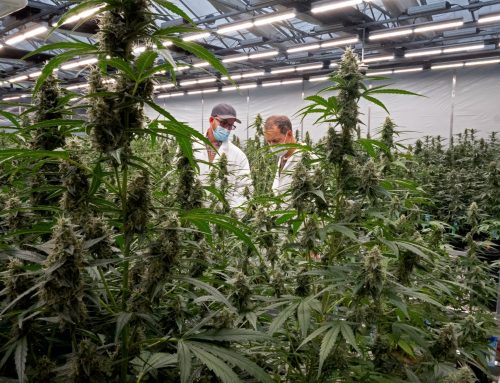Exploring Cannabinoids as a Potential Treatment Avenue for COVID-19 and Long-COVID
LOS ANGELES- In a groundbreaking development in the ongoing battle against COVID-19, a team of Canadian researchers has presented a comprehensive review that suggests a potential therapeutic role for cannabinoids. The study, entitled “Cannabinoids and the Endocannabinoid System in Early SARS-CoV-2 Infection and Long COVID-19,” published in the Journal of Clinical Medicine, delves into how cannabis-derived components might combat the virus.
Authored by Cassidy Scott, Stefan Hall, Juan Zhou, and Christian Lehmann, the review meticulously analyzes data from various studies, positing that cannabis extracts could be instrumental in preventing the onset and alleviating the prolonged impacts of COVID-19. The research indicates that cannabinoids, particularly in cannabis extracts, might inhibit the virus’s cellular entry, diminish oxidative stress, and moderate the excessive immune response often witnessed in severe cases.
This study is particularly noteworthy for its examination of the role cannabinoids could play in preventing viral entry. By potentially downregulating ACE2 protein levels in key tissues, specific cannabis extracts might obstruct the virus’s entry into human cells. This finding is crucial as ACE2 is the primary gateway for the virus.
Another significant aspect of the research addresses the role of cannabinoids in managing oxidative stress, a critical factor in the pathogenesis of COVID-19. Cannabinoids like CBD might transform free radicals into less active forms, thereby potentially reducing the severe oxidative stress associated with the disease.
The study also explores the impact of cannabinoids on the cytokine storm, a severe immune response triggered by COVID-19. Demonstrating effectiveness in reducing inflammatory cytokines, cannabinoids may offer a way to manage such overwhelming immune responses.
Beyond the acute phase of COVID-19, the review also highlights the potential of cannabinoids in treating Long-COVID symptoms, including depression, anxiety, post-traumatic stress injury, insomnia, pain, and decreased appetite. The involvement of the endocannabinoid system in various neurological processes makes it a target for addressing these neuropsychiatric symptoms.
However, the study also notes the implications of different consumption methods and cannabis product types. It points out that while smoking and vaporizing cannabis provide quick effects, they might negatively impact respiratory health, particularly in patients with respiratory illnesses. The authors suggest that vaporizers, which do not combust cannabis, could be associated with fewer respiratory symptoms than smoking.
The authors of the study stress the preliminary nature of these findings, which are derived from studies not exclusively focused on COVID-19. They advocate for more targeted and extensive research, including clinical trials, to fully understand the efficacy of cannabinoids in treating early and post-acute SARS-CoV-2 infections. The study concludes with a call for a more rigorous exploration of the pharmacological aspects and potential therapeutic applications of the endocannabinoid system, underscoring the need for further scientific investigation in this area.



































